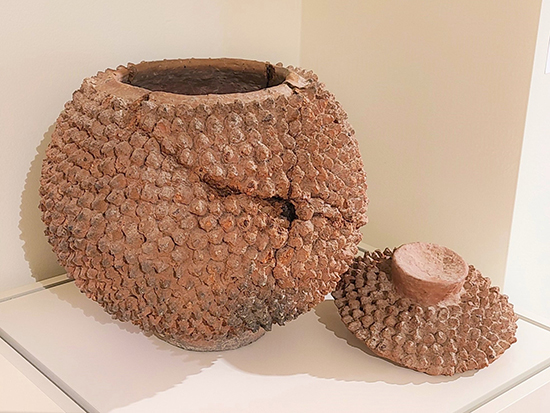Lobi Ceremonial Pot

The Lobi people live primarily in southwest Burkina Faso in West Africa. They migrated to the region from present day Ghana around 1770. Although the Lobi make many types of ceramics, the spikes on this style of pot indicate that it was used as a sacred vessel. The spike-covered surface discourages frequent handling which might disrupt its purpose. Lobi pots like this one are used to contain medicines that protect against misfortune, illness, and witchcraft. They are most often placed in family shrines in small windowless interior rooms. The room contains an altar with groupings of similar vessels, wood and clay figures, and other materials used to connect with the spirit world. The pots can also be placed in shrines in the courtyard of the family compound.
All Lobi potters are women, but they believe that women can risk infertility by making spiritually powerful pots like this one. Therefore, only women who are past their reproductive years can make these special vessels. Although created by women, Lobi men assume ownership of the pots and pass them down from father to son.
This Lobi pot was recently reconstructed by WFU intern Pauline Nguyen (’20) and is currently on display in our new Conservation Spotlight.
Learn about other African ceramics with Artifact of the Month posts about a Zulu beer pot and a Bamana water container.
